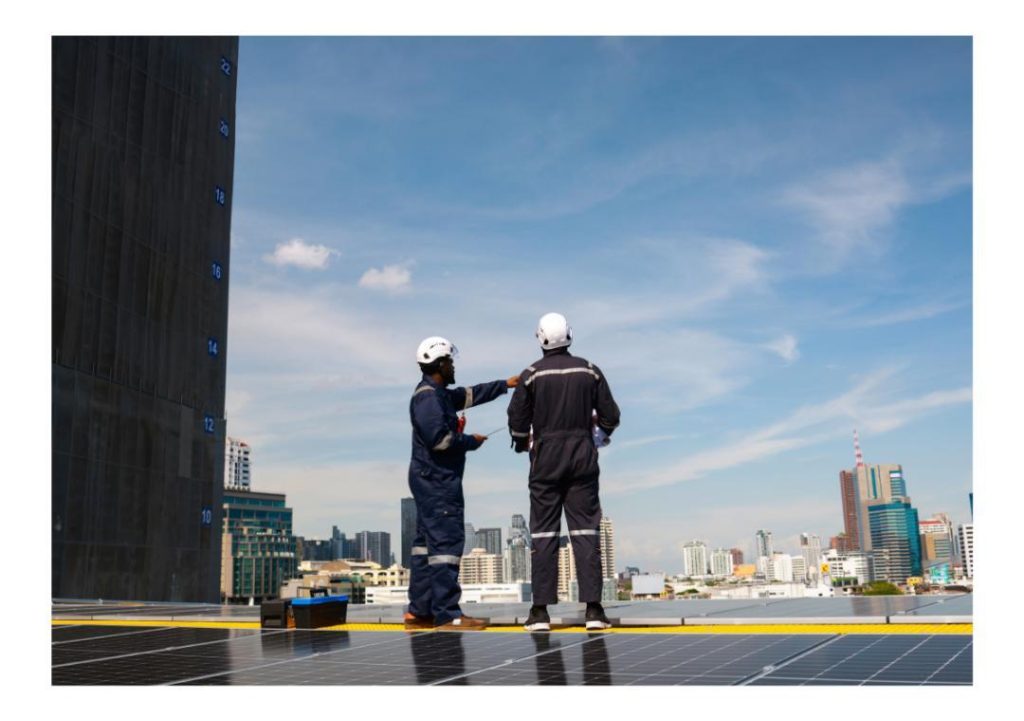
Denmark’s Green Energy Success Cuts Fossil Fuel Dependence
As the world continues to grapple with the challenges of climate change, sustainable energy ventures are becoming increasingly crucial in reducing reliance on fossil fuel imports. One country that has made significant strides in this regard is Denmark, a leader in wind energy that has successfully cut its dependence on energy imports, improved energy security, and reduced vulnerability to global price fluctuations.
In this blog post, we’ll explore Denmark’s green energy success story and examine the benefits it has brought to the country, including job creation, reduced carbon emissions, and a more sustainable future.
A Leader in Wind Energy
Denmark has been at the forefront of wind energy development, with the first wind turbine installed in the country as far back as 1957. Today, wind power accounts for approximately 40% of Denmark’s electricity production, making it one of the world’s largest wind energy producers.
The country’s commitment to wind energy is reflected in its ambitious targets. By 2030, Denmark aims to generate 50% of its electricity from wind power, with the goal of reaching 100% renewable energy by 2050. To achieve this, the government has implemented various policies, including tax incentives, grid connection subsidies, and auctions for offshore wind farms.
Reducing Dependence on Fossil Fuels
Denmark’s transition to green energy has significantly reduced its dependence on fossil fuels. In the 1970s, the country relied heavily on coal and oil imports, which made it vulnerable to global price fluctuations. However, with the growth of wind energy, Denmark has been able to reduce its fossil fuel imports to just 10% of its energy consumption.
This shift has not only improved energy security but also reduced Denmark’s exposure to international price volatility. When global oil prices rise, Denmark’s reliance on wind energy means that it is less affected by these fluctuations, making it a more stable and resilient energy market.
Improved Energy Security
Denmark’s green energy success has also improved its energy security. With a significant portion of its electricity generated from local renewable sources, the country is better equipped to respond to unexpected events, such as grid outages or supply disruptions.
In addition, Denmark’s energy system is designed to be highly flexible, with wind power and biomass plants able to quickly adjust to changes in demand. This flexibility has allowed Denmark to maintain a stable grid and reduce the likelihood of blackouts.
Job Creation and Economic Benefits
Denmark’s green energy sector has created thousands of jobs, both directly and indirectly. The wind industry alone employs over 10,000 people, with many more jobs created in related sectors, such as manufacturing and installation.
The economic benefits of Denmark’s green energy sector are also significant. According to a study by the Danish Wind Industry Association, the wind industry generates approximately €2.5 billion in economic activity each year, with wind power farms and related businesses contributing to local economies.
Reduced Carbon Emissions
Denmark’s transition to green energy has also led to significant reductions in carbon emissions. In 1990, Denmark’s greenhouse gas emissions were approximately 70 million tons. By 2019, this figure had decreased to around 45 million tons, a reduction of over 35%.
This decrease in emissions is primarily due to the growth of wind energy, which has replaced fossil fuels as the primary source of electricity production. Denmark’s commitment to reducing its carbon footprint has also led to increased investments in energy efficiency and sustainable transportation.
Conclusion
Denmark’s green energy success is a model for other countries to follow. By investing in local renewable sources, reducing dependence on fossil fuels, and improving energy security, Denmark has created a more sustainable and resilient energy market.
The benefits of Denmark’s green energy transition are clear, from job creation and economic growth to reduced carbon emissions and improved energy security. As the world continues to grapple with the challenges of climate change, Denmark’s success serves as a reminder of the importance of investing in sustainable energy ventures and the significant benefits they can bring.
News Source:
https://www.growthjockey.com/blogs/venture-building-in-renewable-energy






